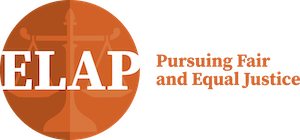By Rebecca Schumacher, ELAP intern
Many legal aid clients have experienced some form of trauma. Understanding how trauma affects client-attorney interactions will make you a more effective advocate.
Trauma-informed lawyering is an individualized practice approach, informed by each client’s unique trauma, aimed to reduce re-traumatization, support clients’ healing, and improve attorney-client communications.
Practising Law Institute’s 1-hour CLE program “Trauma-Informed Lawyering: Strategies and Best Practices” is a must-watch for attorneys providing pro bono legal aid. It addresses how trauma can manifest in client relations and offers best practices for building trust with your clients.
Trauma-informed advocacy requires understanding trauma stemming from specific events and systemic trauma (e.g., racism, poverty) that shape a client’s experience. The CLE covers several common manifestations of trauma—including dissociation, minimization, difficulty trusting others, and anxiety attacks—and provides tips for recognizing and responding to these manifestations in client interactions.
The program also covers essential practices for building trust with clients through transparent communication and the utmost sensitivity. For example, minimizing the power/privilege differential between you and your clients through collaboration can assure clients they are equal partners in the attorney-client relationship. This collaboration requires establishing shared goals and making decisions with—not for—your clients.
This CLE also covers best practices for creating a safe space for your client interactions. Before client meetings, you should tell clients what to expect, discuss childcare, transportation, and other accommodations, and ensure you meet in a private and comfortable space at a time that works for them. You should limit participants to only those necessary and explain attorney-client privilege/confidentiality to your clients. It is also important you explain the legal process for your client’s case and set realistic goals and expectations together at your initial meeting.
Lastly, this program provides tips for discussing a client’s trauma with them by asking non-judgmental questions, using context to build a timeline when necessary, and mirroring your client’s language instead of labeling their experiences yourself. To avoid overwhelming clients, limit your questions to those necessary for building their case and explain why you are asking them.
Practising Law Institute (“PLI”) is a nonprofit organization dedicated to keeping attorneys at the forefront of knowledge, specifically with respect to pro bono legal work. PLI’s Pro Bono Membership for qualified 501(c)(3) legal aid organizations provides unlimited access to more than 10,000 hours of legal education programming and free CLE credits for any programs viewed. If your organization does not qualify for the pro bono membership, but you provide pro bono client representation or work/volunteer for a nonprofit organization, you may be eligible for a PLI scholarship to programs related to your work.



